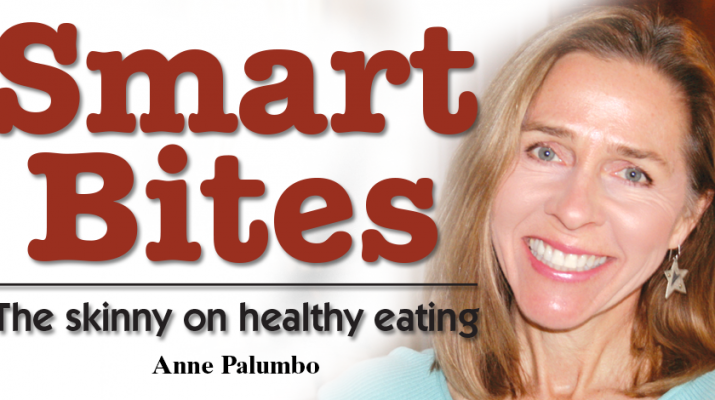By Anne Palumbo
 I always love a good nutritional surprise; and cabbage doesn’t disappoint.
I always love a good nutritional surprise; and cabbage doesn’t disappoint.
Although many varieties abound, today’s column focuses on the most popular cabbage consumed in the US: green cabbage.
So what’s so surprising about this underrated vegetable? One, it’s a nutritional powerhouse, on par with many of its cruciferous cousins: broccoli, cauliflower and kale. Two, it’s inexpensive and versatile: as delicious raw as it is cooked. Three, it’s climbed to the top of pandemic cooking for this mundane reason: it lasts longer in the fridge than most vegetables!
Let’s start with one of cabbage’s most noteworthy health perks: its potential to keep chronic inflammation in check. Although inflammation plays a vital role in healing, chronic inflammation may increase the risk of certain diseases, such as heart disease, stroke, cancer, diabetes and some autoimmune diseases. Cabbage teems with powerful compounds and vitamins that quell inflammation by gobbling up toxins that attack tissues and subsequently cause a high inflammatory response.
Another perk to ponder? Cabbage is surprisingly good for hearts, and in more ways than one. Its fiber helps prevents heart disease by lowering both blood pressure and cholesterol and also by filling us up, which helps us eat less and maintain a heart-friendly weight. Its vitamin K benefits tickers by preventing a build-up of calcium in our blood—a build-up that can harden arteries, a leading cause of heart attacks and strokes. And, as mentioned, its inflammation-busting antioxidants—from vitamin C to manganese to phytonutrients—are a heart’s best friend.
If cancer concerns you, this leafy superfood should find its way into your diet on a regular basis. According to the National Cancer Institute, cruciferous vegetables, like cabbage, contain unique sulfur-containing compounds—glucosinolates—that help the body fight cancer. They do this by impeding the growth or development of cancer in a number of ways: by causing carcinogens to become inactive, by inhibiting the formation of blood vessels in tumors, by hindering the migration of cancer cells, and much more.
More good reasons to reach for this nutrient-dense hero: it’s super low in calories (only 20 per chopped, raw cup); it has no fat or cholesterol; and it’s available year-round.
Healthy Vegetable Cabbage Soup
Adapted from Delish.com
Serves 6
2 tablespoons olive oil
1 large onion, chopped
2 large carrots, chopped
2 stalks celery, chopped
½ teaspoon chili powder
½ teaspoon cumin
½ teaspoon salt
¼ teaspoon coarse black pepper
1 (15 oz) can white beans, drained and rinsed
2 garlic cloves, minced
1 teaspoon dried thyme
4 cups low-sodium chicken or vegetable broth
½ large head cabbage, cored and chopped
1 (15 oz) can diced tomatoes
2 tablespoons fresh lemon juice
pinch of red pepper flakes (optional)
In a large soup pot, heat olive oil over medium heat. Add onion and cook for 3 minutes; then add carrots, celery, chili powder, cumin, salt, and pepper and cook for about 5-6 minutes more, stirring often. Stir in beans, garlic, and thyme and cook for 1 minute more. Add broth and bring to a simmer.
Stir in tomatoes and cabbage and cook on low until cabbage is wilted, about 6-7 minutes. Remove from heat and stir in lemon juice and red pepper flakes, if using. Adjust seasonings and serve.
Helpful tips
Select cabbage heads that feel solid and heavy in your hand, with leaves that are tightly attached to the head. Avoid buying precut cabbage (including shredded); once cabbage is cut it begins to lose its vitamin C content. To store in the fridge (preferably in the crisper drawer): Keep your cabbage whole, don’t rinse it, and place it in a plastic bag. Properly stored, cabbage can last from 3 weeks to up to 2 months. When preparing cabbage, avoid long cooking methods and boiling, which cause vital nutrients to diminish.
Anne Palumbo is a lifestyle columnist, food guru, and seasoned cook, who has perfected the art of preparing nutritious, calorie-conscious dishes. She is hungry for your questions and comments about SmartBites, so be in touch with Anne at avpalumbo@aol.com.

